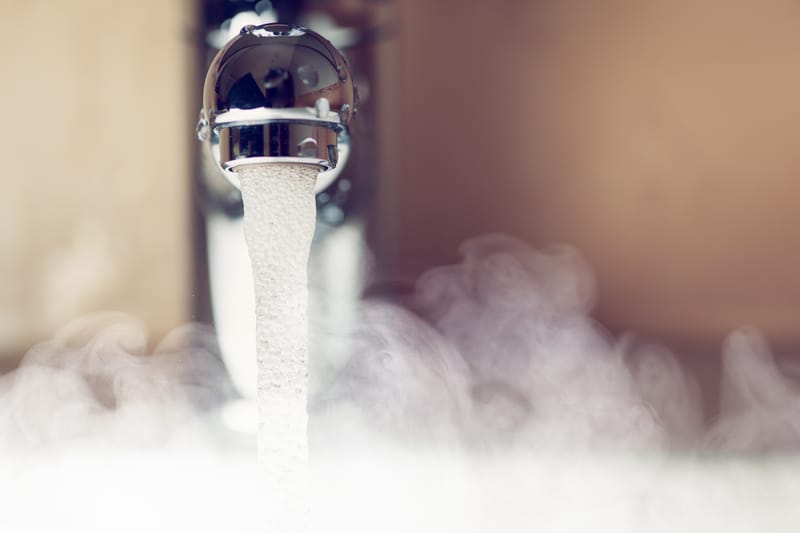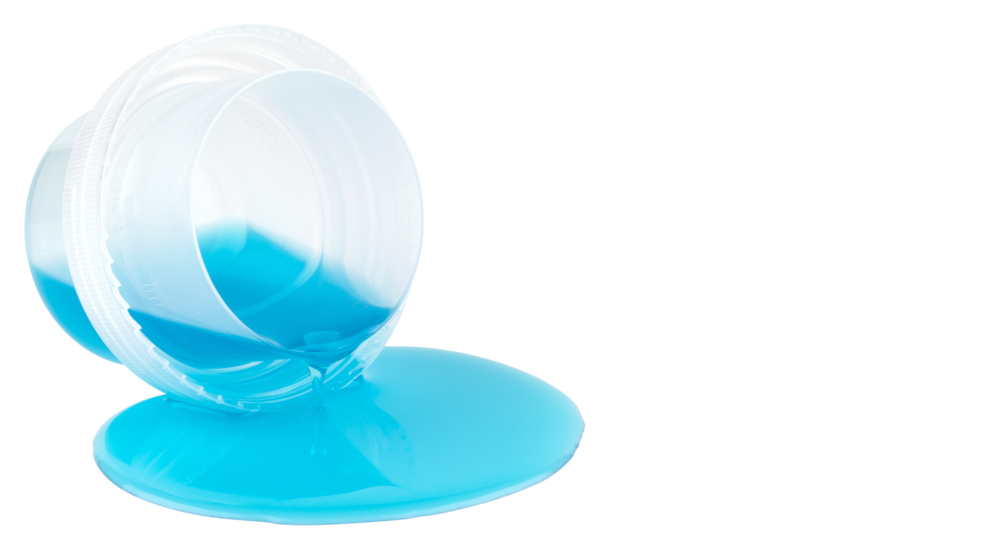Living in cold areas or locations is tricky as you have to know the basic knowledge about keeping things secure because the low temperatures can cause freezing. Liquid detergents are water-based and can also freeze if you keep them to lower temperatures.
This article will mention all the necessary knowledge you need regarding how you can keep your liquid detergent to prevent all the freezing problems and the ideal temperature to keep your laundry soap and laundry detergent if you live in countries with low temperatures.
Yes – The liquid detergents or laundry soaps are not sensitive to moisture but are sensitive to heat and cold. They can quickly freeze at low temperatures. The ideal temperature to keep your liquid detergent stable is between 50 – 77 degrees Fahrenheit (10 – 25 degrees Celsius). The freezing might cause instability in the liquid laundry detergent, causing difficulties in using the product. Also, frozen laundry detergents won’t dissolve in the water well and make it hard to wash or soak your clothes with.
It can be really tricky if you live in a country where the temperature is usually below 32 degrees Fahrenheit (0 degrees Celsius) because you can’t keep your liquid detergent anywhere. It will result in freezing which will assuredly waste the product entirely. Still, with our guide, you will know how you can prevent freezing and store your laundry detergent/liquid detergent with ease to avoid worrying about the product going to waste. So, let’s dig deep and know more about where and how to keep your laundry soap safe.
How to prevent laundry soaps or detergent from freezing?
As you might know, the water freezes at 32 degrees Fahrenheit (0 degrees Celsius), and the water-based products also freeze at the same temperature. Now, the liquid detergents are water-based, and keeping them in a room won’t solve your problem unless the room has a heater on or has a stable temperature of 50 – 77 degrees Fahrenheit (10 – 25 degrees Celsius). Not just the liquid detergent, but the powder detergent also gets harden if kept at a temperature below 32 degrees Fahrenheit (0 degrees Celsius).
What happens if the liquid detergent freezes?

When a liquid detergent freezes, the product’s components get destabilized, making the product of no use as the product’s components will no longer respond to water or won’t even mix with the water. Somehow, even if you managed to mix it well by stirring, the components still won’t respond in cleaning your garments; for example, the stains and dirt won’t go away because the product’s chemical bonds are destroyed or broken apart due to freezing.
Does the product still work the same after freezing?
When a product freezes, its bonds are entirely broken, which will make it unstable to use. It assuredly works but at a lower capacity; in other words, you will have to use more solutions than advised to get the default results. This will cause extra money as you will have to purchase more than you need because of the freezing problems. Also, it might ruin your garments, too, as the additional solution might react with the fabric and color.
Should you consider keeping the laundry detergent outside in the cold climate?
The cleaning detergents usually have a component called polymers which do not hold well in the cold climate. Moreover, the lower temperatures also cause freezing to the liquid detergents as they are water-based. Besides, freezing also damages the components causing them to precipitate at the bottom of the bottle.
Where to keep your liquid detergent?
Instead of placing the liquid detergents outside, you should always consider keeping them inside a heated area where the temperature is stable or at least above 50 degrees Fahrenheit (10 degrees Celsius). This will help prevent the chemical solution of the liquid detergent from freezing and preventing the product from going to waste.
Multiple freezing and thawing cycles make the laundry soap chemical bonds unstable and no longer sufficient for removing the greasy stains.
Can you use a frozen liquid detergent?

Unfortunately, you can’t use a frozen liquid detergent as the low temperatures destroy the product’s chemical bonds.
AllAboutDetergents.com
Using it might also cause damage to your garments and appliances as it won’t clearly dissolve in the water as the bonds’ functionality is not stable anymore. The components also separate, causing them to precipitate at the bottom of the bottle.
Things you should avoid to prevent laundry detergent from freezing
Most people do plenty of things to prevent the water-based or liquid detergents from freezing, which are entirely wrong and cause the laundry detergents’ instability. Let’s dig deep and know more about those factors. Also, it will be best if you avoid doing the following things.
Avoid using any direct heating units to prevent freezing
Most people use heating pads or any other heating units to prevent their laundry detergent’s components from freezing; in other words, they try to keep the product in the surrounding of heating units. The heating units provide direct heat to the water-based detergents, which damage them as the liquid detergent’s chemical bonds are damaged by the lower temperatures and the higher temperatures.
Don’t microwave the frozen laundry detergent product.
AllAboutDetergents.com
Microwaving the frozen product to restore it to its default state is not ideal and should not be considered. Doing it destroys the chemical bonds of the product more, making it a complete waste product. Moreover, it can also ruin your microwave if the bottle explodes. It will be best if you don’t consider doing it at any cost.
Mixing the frozen laundry soap in the warm water

Many people assume that mixing the frozen liquid detergent in warm water will fix it. Still, the reality is, it does not do anything like the laundry detergent’s rigid components won’t mix with water entirely, and it can also cause damage to your clothes if you soak them in the water. Moreover, warm water is not ideal for washing clothes as the stains do not respond correctly to the warm water as compared to the cold water.
Is there any way that can help you restore the frozen laundry detergent?
You might be thinking to restore the laundry detergent anyhow after it is entirely frozen. Unfortunately, no way can help you bring the frozen laundry detergent to its default state as it’s not just frozen, but the components of the product are destroyed and precipitated. Using it will only ruin the functionality of your washing machine and the fabric of your garments.
Will unfreezing the frozen liquid detergent help?
Unfreezing the laundry detergent won’t help as it’s not about the temperature, but the constant freezing and thawing cycles have destroyed the liquid detergents chemical bonds.
Consider keeping your stock of liquid detergent and laundry soap closed and airtight in a dry and heated area to prevent them from going to waste and make washing clothes in the winter a lot easier without any worries.
Can you make the liquid detergent effective even if it’s frozen?
We all can wish there might be a way to fix the liquid detergent’s broken components to make it useful as it was, but sadly there isn’t any. The chemical bonds’ capabilities are no longer that potent, which can fight the germs, body oils, and the greasy stains present in the used garments.
We would recommend you buy another liquid detergent to wash and soak the clothes to get the best results possible. However, you can still use it by giving a bottle a good shake, but the results won’t be as useful as you desire because they will be clumpy.
Should you consider using frozen laundry detergent in a washing machine?
The frozen and separated components of the frozen liquid detergent might cause clogging in the washing machine, which will ruin the appliance’s functionality. This is why you should not consider using it as it can cost you expensive repairs, which is assuredly more than the cost of the liquid detergent.
You don’t need to be concerned anymore, even if the winter is around the corner because we got you. We have provided all the information you need to keep your laundry detergent and other water-based detergents safe.
Go and get the stockpile of your laundry detergents and keep them in a heated area or inside the house to avoid the freezing factor.
AllAboutDetergents.com

